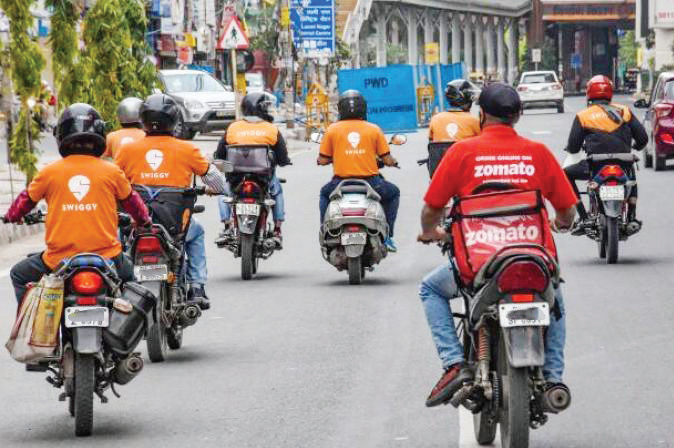
Dignity denied: Plight of delivery executives on World Toilet Day
As B’luru's delivery workforce navigates long hours and tight schedules, the lack of access to clean sanitation facilities adds to their daily struggles
NT | Bengaluru
In Bengaluru, where approximately 50,000 to 70,000 part-time and full-time delivery executives work during peak hours, this issue takes on special urgency. These individuals ensure seamless delivery of food and essentials across the city, often at the cost of their own comfort and dignity due to inadequate access to toilets. November 19 marks World Toilet Day, an opportunity to reflect on the critical need for access to clean and safe sanitation facilities. The plight of delivery executives was starkly highlighted in a recent incident at Mantri Square Mall, where a delivery worker was allegedly threatened and denied access to an elevator by the staff. Such treatment not only violates basic human dignity but also sheds light on the broader issue of the lack of proper sanitation facilities for these workers. Most restaurants and eateries in the city deny delivery executives access to their toilets, forcing them to rely on unsanitary public restrooms or resort to urinating in public spaces.
This lack of sanitation infrastructure adds to the already gruelling nature of their work, where they often spend long hours navigating traffic and tight delivery schedules. Speaking to News Trail, a few delivery executives shared their difficult situation regarding the same. Prakash, a student who works as a delivery executive, shared his struggles, saying, “I attend college in the mornings and deliver food in the evenings and nights due to my family situation. It’s already embarrassing when my classmates see me in the uniform. Every day, I leave home in the morning and don’t return until after dinner. This makes it extremely challenging because there are no proper sanitary facilities available for delivery executives like us to use the toilet.” Another food delivery executive working for a popular online food ordering platform expressed his frustration, saying, “It’s not like we’re unclean or something. While a few restaurants allow us to use their restrooms, most don’t even let us enter their premises. We are made to wait on benches outside while the food is being prepared.” Adding to this, his colleague remarked, “Restaurants refuse to let us use their toilets, and we all know the condition of public restrooms.
When we’re left with no option but to relieve ourselves on the roadside, we’re the ones blamed for being unsanitary. It’s unfair and humiliating.” When News Trail reached out to the General Manager at Swiggy, Bengaluru, for a comment on the issue, there was no response. The company provided a link outlining the benefits offered to its delivery partners, but it made no mention of sanitation facilities or toilet access for the workers. The Indian Sarais Act of 1867 mandates that hotels and lodges provide free access to toilets and water to the public, irrespective of whether they are customers.
However, this law does not explicitly cover restaurants and cafes. In Bengaluru, there is no legal framework requiring eateries to allow public toilet access. Nevertheless, the Bruhat Bengaluru Mahanagara Palike (BBMP) is considering a proposal to allow the general public to use restrooms in restaurants and hotels, a move that could greatly benefit delivery executives.
 English daily published in Bengaluru & Doha
English daily published in Bengaluru & Doha






